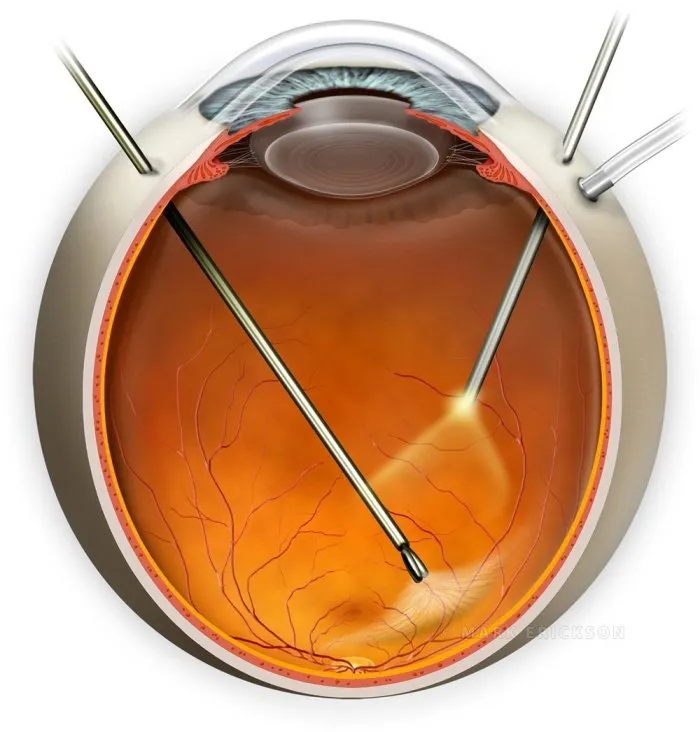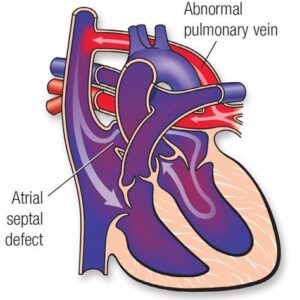Description
Epiretinal Membrane Peeling: Restoring Clarity by Removing Macular Pucker
Treatment Familiarity:
Epiretinal membrane peeling is a surgical procedure performed by ophthalmologists (eye doctors) to remove a thin layer of scar tissue (epiretital membrane) that forms on the surface of the macula, the central part of the retina responsible for sharp central vision. This scar tissue can cause vision distortion and blurry vision. Epiretinal membrane peeling is a relatively common procedure for addressing vision problems caused by macular pucker, another term for this condition.
Procedure Breakdown:
Epiretinal membrane peeling is typically performed as an outpatient procedure:
- Anesthesia: Local anesthesia with numbing drops or a small injection is typically used. In some cases, general anesthesia might be preferred.
- Vitrectomy (often performed first): As described previously (see Vitrectomy section), a vitrectomy may be performed first to remove the vitreous humor (gel-like substance) from the eye, allowing better access to the macula.
- Membrane Peeling: Using specialized micro-instruments, the surgeon carefully peels the epiretinal membrane from the surface of the retina. This requires meticulous technique and high magnification for precise manipulation.
- Laser Treatment (optional): In some cases, laser therapy may be used to address any residual tissue or retinal tears.
- Closure: The small incisions made in the sclera (white part of the eye) are meticulously sutured (stitched) closed.
Suitable Candidates:
Epiretinal membrane peeling is an option for individuals experiencing:
- Vision Distortion: Straight lines appearing wavy or distorted (metamorphopsia).
- Blurry Central Vision: Difficulty seeing fine details clearly, especially when reading or performing close-up activities.
- Confirmed Epiretinal Membrane: Diagnosis by a comprehensive eye exam and imaging tests like OCT (optical coherence tomography).
Who Might Not Be a Candidate?
Epiretinal membrane peeling may not be suitable for everyone. It’s generally not recommended for:
- Individuals with mild symptoms: If the vision distortion or blurriness is mild and not significantly impacting daily life, watchful waiting might be preferred over surgery.
- People with severe medical conditions: Severe health problems that could increase surgical risk.
- Patients with unrealistic expectations: It’s important to understand that vision may not be completely restored to normal, and there is a chance the membrane could recur.
Advantages of Epiretinal Membrane Peeling:
- Improved Vision: Successful peeling can significantly improve central vision and reduce distortion.
- Enhanced Quality of Life: Better vision can significantly improve daily activities like reading, driving, and recognizing faces.
- Minimally Invasive Techniques: Advancements in surgical techniques have made epiretinal membrane peeling a less invasive procedure with faster recovery times.
Potential Complications:
- Bleeding: Minor bleeding can occur during or after surgery.
- Infection: Although uncommon, infection is a potential complication requiring prompt antibiotic treatment.
- Cataract Formation: Epiretinal membrane peeling can increase the risk of developing cataracts later in life.
- Increased Eye Pressure: Glaucoma, a condition of increased pressure within the eye, can develop after surgery.
- Re-growth: There is a small chance the epiretinal membrane could grow back, requiring additional surgery.
- Vision Changes: Temporary blurred vision or fluctuations in vision are common after surgery. Vision restoration may not be complete in all cases.
Preoperative Care:
- Comprehensive eye exam to assess the severity of the epiretinal membrane and overall eye health.
- Imaging tests like OCT to provide detailed information about the macula and the membrane.
- Discussion of risks and benefits of epiretinal membrane peeling with your ophthalmologist.
- Medical evaluation to ensure you can undergo surgery safely.
Postoperative Care:
- Eye drops or ointment to prevent infection and inflammation.
- Wearing an eye patch or shield for a short period to protect the surgical site.
- Avoiding strenuous activity for a period of time, as instructed by your ophthalmologist.
- Regular follow-up appointments with your ophthalmologist are crucial to monitor healing, vision improvement, address any concerns, and detect potential complications early.





Reviews
There are no reviews yet.